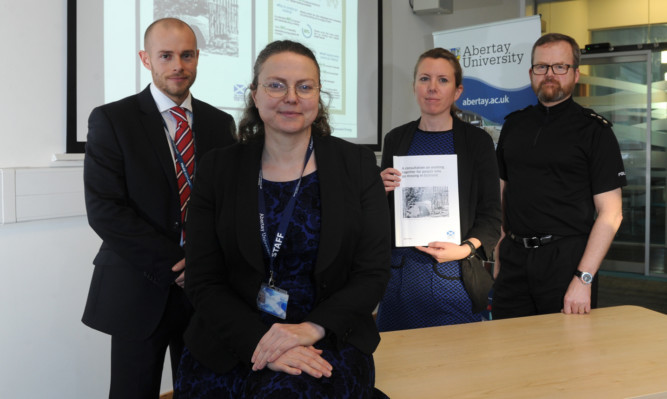More than 30,000 people are reported missing in Scotland every year 2,000 of them in Tayside alone.
While most are quickly found, many are in distress and suffering from mental ill-health issues or at risk of exploitation or harm.
In many cases, early identification of their problems and intervention could protect them from danger.
Such concerns are behind the efforts to create Scotland’s first National Missing Persons Strategy, which was discussed at Abertay University.
Dr Penny Woolnough, lecturer in psychology at Abertay and a member of the Scottish Government Missing Persons Working Group, has helped draft the new strategy.
She said: “Missing persons is a complicated, wide-ranging issue and the number of organisations involved both local and national is extensive.”
She continued: “Children and young people account for about two-thirds of incidents and many repeatedly go missing.
“Although most return or are found within 48 hours, this is not always the case and the purpose of this new strategy is to reduce the harm related to people going missing and to increase the number of happy outcomes.”
Superintendent Graeme Murdoch is the Police Scotland Tayside lead officer for missing persons.
He said: “Safeguarding vulnerable members of our society is an absolute priority for Police Scotland and our partner agencies within the Tayside area.
“The impact on families and communities when people go missing is immeasurable and it is right that the Police have a key role to play.
“The issue of people who go missing, however, is far too important, impactive and vast for Police Scotland to tackle alone and we therefore welcome the proposed strategy and today’s event which has allowed partners to come together and exchange ideas and views.”
The Scottish Government’s consultation has been open since August 27 and will close on December 7.
